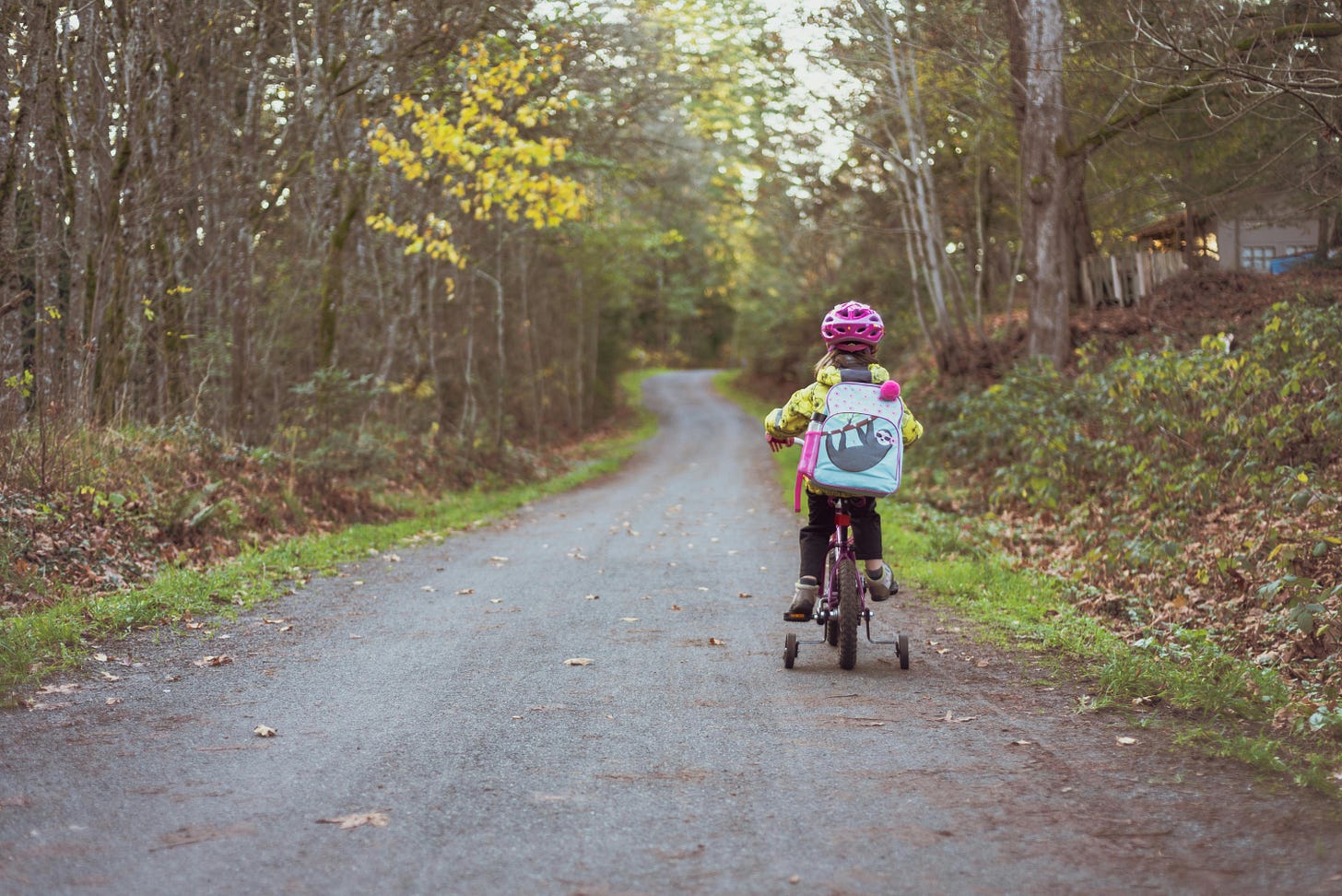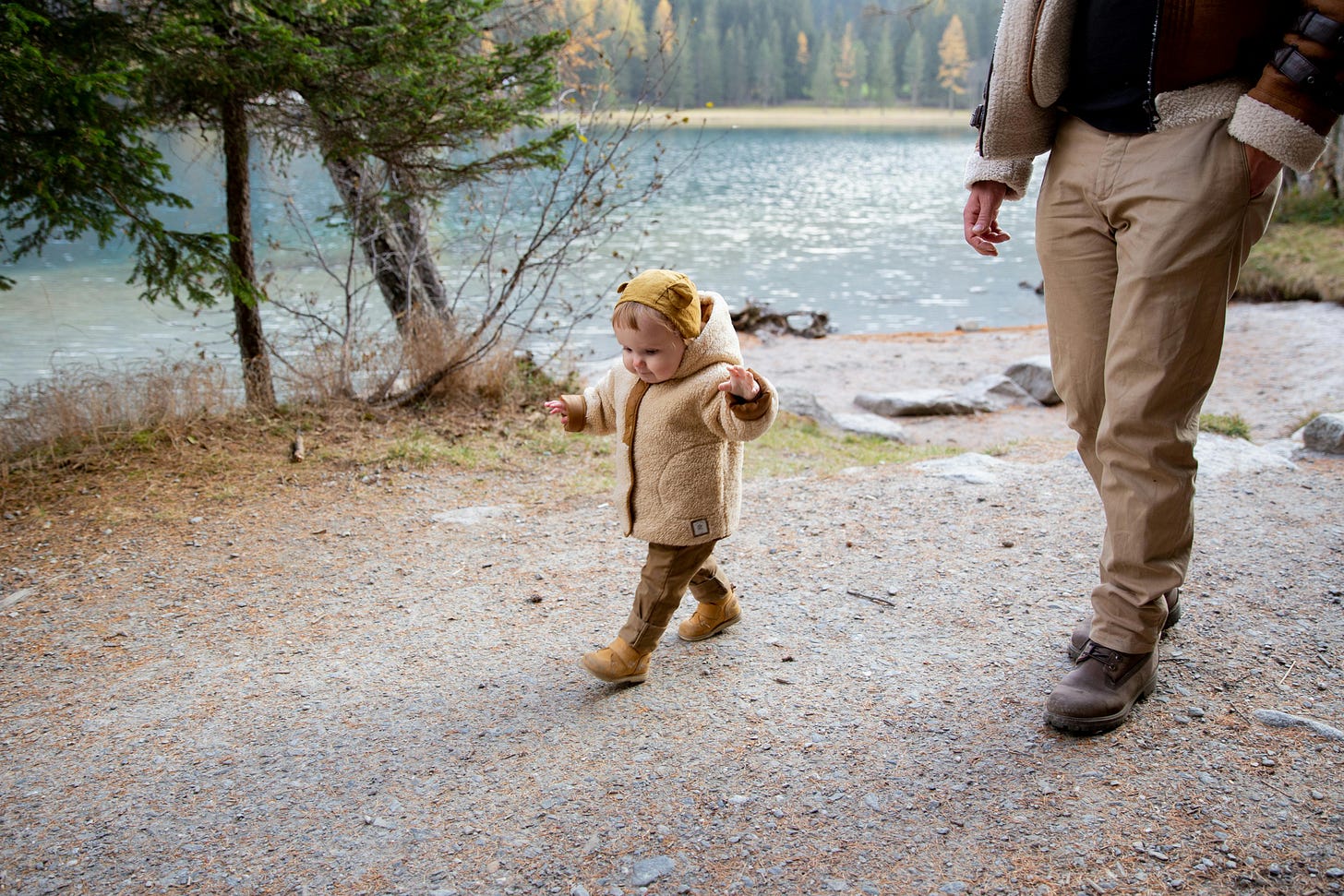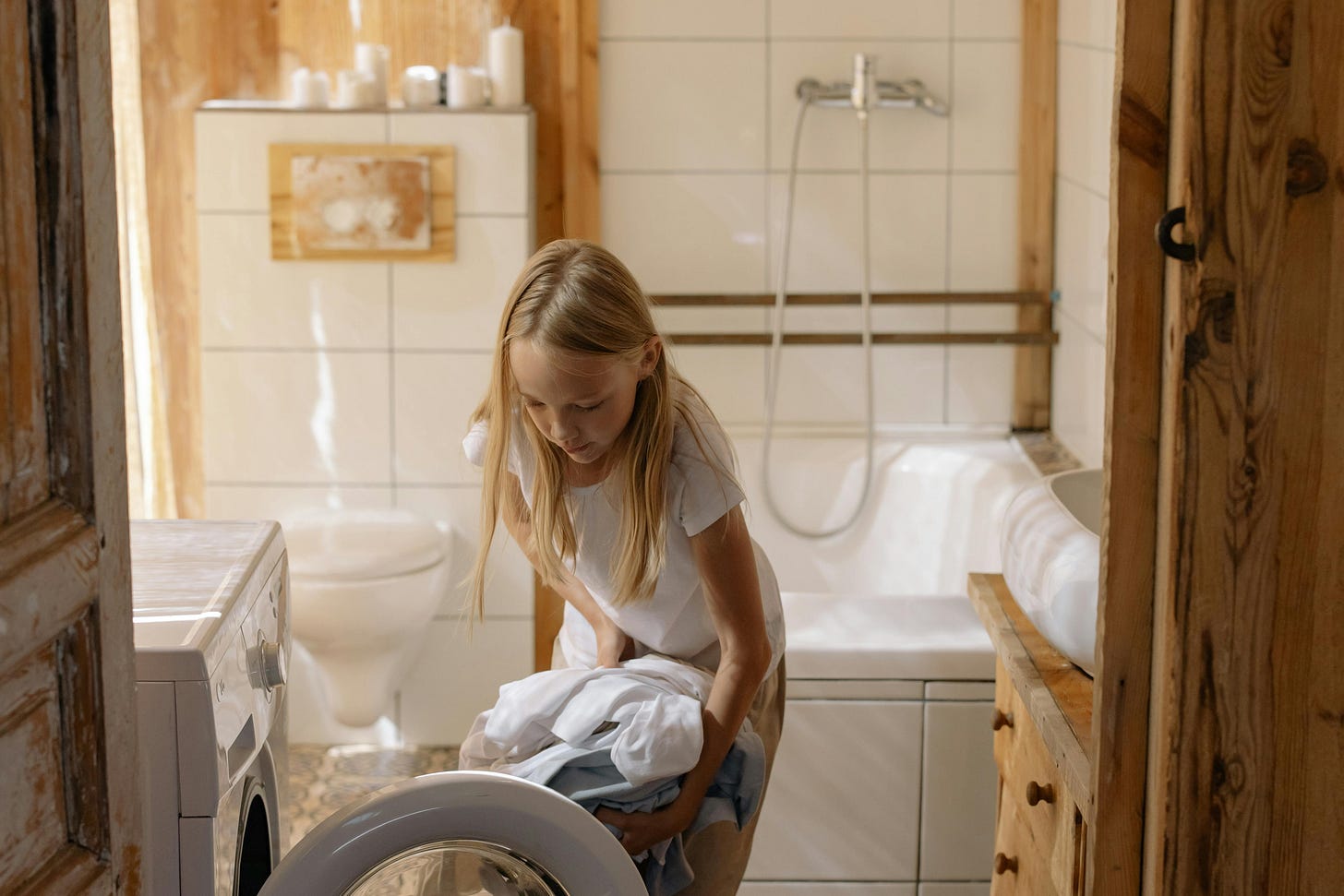When my children first learned how to crawl, I would sit on the floor a short distance away with my arms wide open. They would hesitate, lean forward, sit back in confusion, waffle about what to do, then get on all fours and start rocking with wild enthusiasm. Eventually, they managed to cross the divide that separated us and arrived, triumphant, in my arms.
We did the same thing when they started to walk. I was just a few steps away, waiting for them, encouraging them. They were nervous but excited, eager to try out this new skill, worried that they wouldn’t make it. They always did, even if it involved a few stumbles along the way. And the look on their face, the squeals of excitement at having achieved what previously seemed impossible, was a highlight I’ll never forget.
Those days of tentative new steps are long past. My kids are now big and fast on their feet (and would probably roll their eyes at my nostalgic retelling). But some things never change, and that is the basic act of me standing apart from them as they venture out into the world. They know I’m there, standing on the sidelines, waiting on the other side, but they know I’m not going to hold their hand as they do what they need to do, which is to individuate from me.
I think a lot about how to develop independence in children, not only because I always wanted my own kids to start doing things on their own (a sign of healthy growth), but also because it’s a natural progression that kids desperately need in order to feel confident about their own abilities and, by extension, less fearful about the outside world. There is a real crisis in capability among many children and teens who lack the tools to operate independently in the world without a parent supporting them, and this has enormous societal repercussions, not to mention fuels anxiety in the poor child. (It’s also exhausting for the parent whose job never ends.)
Get Out of the Way
One fundamental way to boost independence and avoid fueling this cycle of incompetence is to subtract yourself from the equation. Put other ways: Remove yourself. Get out of the way. Step back. Leave them alone. Let go to let grow. Do less for your kid.
This may feel counterintuitive to many parents, who, particularly in this age of “gentle parenting”, may feel like they need to be exceedingly supportive and hold their child’s hand every step of the way. While some situations do call for that, there is profound growth to be had by simply letting kids do stuff themselves. I think Abigail Shrier put it well in her new book, Bad Therapy:
“You don’t give a child independence any more than you give a child confidence, however much it flatters us to think we do. In most circumstances, you simply get out of their way—stop interfering—and independence takes its course.”
For all the talk of “giving kids tasks that build independence” or trying to “boost their autonomy,” we risk “participating in the problem of ruining our kids through overtreatment.” We overlook the simplest tactic of all, which is just to step back and not do things as the parent. Sometimes that’s the best way to teach a child. Toss them in! Sink or swim!
A child who is carried everywhere will never need or want to learn how to crawl or walk independently. A child whose parent orchestrates and monitors every aspect of their life will never learn to do it themselves. These are stunted little humans, not the kind we wish to raise.
How to Do It
You stop doing many of the little things in your kid’s life, like telling them what to wear, what to do, where to go, what assignments are due and when. You ask them to pack their own lunch, walk to school (and be in charge of leaving on time), get to their piano lesson or soccer practice independently, tie their own shoes, take responsibility for their homework.
You tell them to do their own laundry, change their own bed sheets, go to the grocery store for ingredients that you’re missing, make appointments on their own. You stop making play dates and offering suggestions for how to fill an empty Saturday.
“Take all the stuff you’re doing for your kids—all the tech and entertainment you supply and activities you schedule—and toss about a third of it out,” writes Shrier. Your kid may flail and flounder for a bit, but they will quickly figure out how to navigate these new challenges and will ultimately enjoy an amazing sense of achievement.
Don’t Fear Failure
And what if they fail? Then they fail! Childhood is a fairly low-stakes environment. That’s a big part of childhood’s purpose, to be a training ground for adulthood. It is far better for a child to get a terrible mark in grade 8 because they ignored their homework than to be micromanaged by a parent all the way through high school, only to fail miserably in university because they’ve never had to keep track of a deadline before.
I do this with my kids. I have no idea what any of them is doing in school at any point. Occasionally, one will mention a project or assignment, and we might discuss it briefly. I don’t edit essays (I would, but they don’t want it) or keep track of tests. I see their report cards twice a year and, for every A earned, they get $5. It works well for us.
‘Benign Neglect’ Isn’t a Bad Thing
Another way to think of this is as “benign neglect.” Jeni Marinucci wrote for CBC Parents that she treats her children almost like heart houseplants: “They should be watered liberally and you should ensure they get ample sunshine. But otherwise, just let them be.”
Marinucci said that, from a young age, her children have been making their own hair and optometrist appointments (after she showed them how to do it) and doing their own back-to-school shopping (she pays for it). Saturdays are wide open for her kids to use as they please, and she hasn’t had to wake up early on a weekend in years. They know where the milk and cereal are.
My No-Play Policy
In our family, I have always avoided playing with my kids. I realize that some adults love playing with children, but I am not one of those adults. I always found the games painfully tedious, and so, after years of moderate guilt, I’ve accepted that I just don’t play. I tell my kids that I do many other things for them—feed them, clothe them, house them, teach them, listen to them, discipline them, love them—but I don’t play. “That’s why I gave you siblings!” I joke.
But I am starting to realize it’s not a bad thing. I’ve subtracted myself from their play, and they’ve flourished on their own. They make up elaborate games (usually Nerf battles) with each other and their friends. They do not need me to inject boring adult perspective. They have learned to overcome boredom and pursue curiosity. They’re doing just fine.
Subtraction Is Not Absence
Subtracting oneself from the little things does not mean you’re checking out of the big things. It is not the same as absence, nor does it justify abdicating the parental responsibility to mentor. There are key places where firm leadership and high standards are critical.
For me, that is ensuring good nutrition and nightly family dinners, maintaining strict rules around tech use, and mandating reasonable bedtimes so everyone gets enough sleep. Of course, there are general expectations to do well in school, to behave civilly, to practice their instruments, and to attend whatever extracurriculars they’ve chosen, but I don’t oversee these closely; I trust them to handle things. Otherwise, my kids are more or less free to do what they want.
The parent’s job is to be a rock that may not move but is always there. To be a stable base from which the child can leave to test physical and emotional boundaries, and to which the child can return when she or he needs to feel secure. Subtraction naturally causes a child to grow and learn, and it makes a parent’s job so much easier in the long-term.
The goal should be less monitoring, less distraction, less accommodation, less interrupting, less intervention. Can we please just give the kids a break?
You Might Also Like:
Move With Purpose
Let the Kids Have Sleepovers
Seventeen Seconds
In Other News:
Last Monday, April 1, I had an interview on Global TV—The Morning Show (Toronto) to talk about Ontario school boards launching a lawsuit against social media companies for disrupting kids’ right to an education. You can watch the clip here.
Please check out my new website! I give frequent in-person and Zoom presentations to schools, service organizations, and companies of all sizes about the importance of embracing digital minimalism. In recent months, I’ve spoken to audiences in Vancouver, Toronto, Whistler, Squamish, Collingwood, Barrie, and remote audiences in Europe. If you’d like to book me for a presentation, please get in touch! See contact info on my website.
If you enjoy reading The Analog Family, please share these posts with friends, family, and acquaintances! As always, you can show your support by pledging payment, buying my book, leaving an Amazon review, or hiring me to talk.








I was in Portugal last week with my family and was so disappointed to see parents hovering at the playgrounds like they do in Philadelphia. My three year old really wanted to play with kids but came to me and said "too many adults!"
Back home, we have a new cool playground that is designed to make it uncomfortable for the adults to be on it and I love it. Let the kids play with other kids!
Much more enjoyable to watch kids sort things out for themselves than to guide them. Have seen kids adapt play 'rules' to accommodate players of varying skills without grownups intervening.